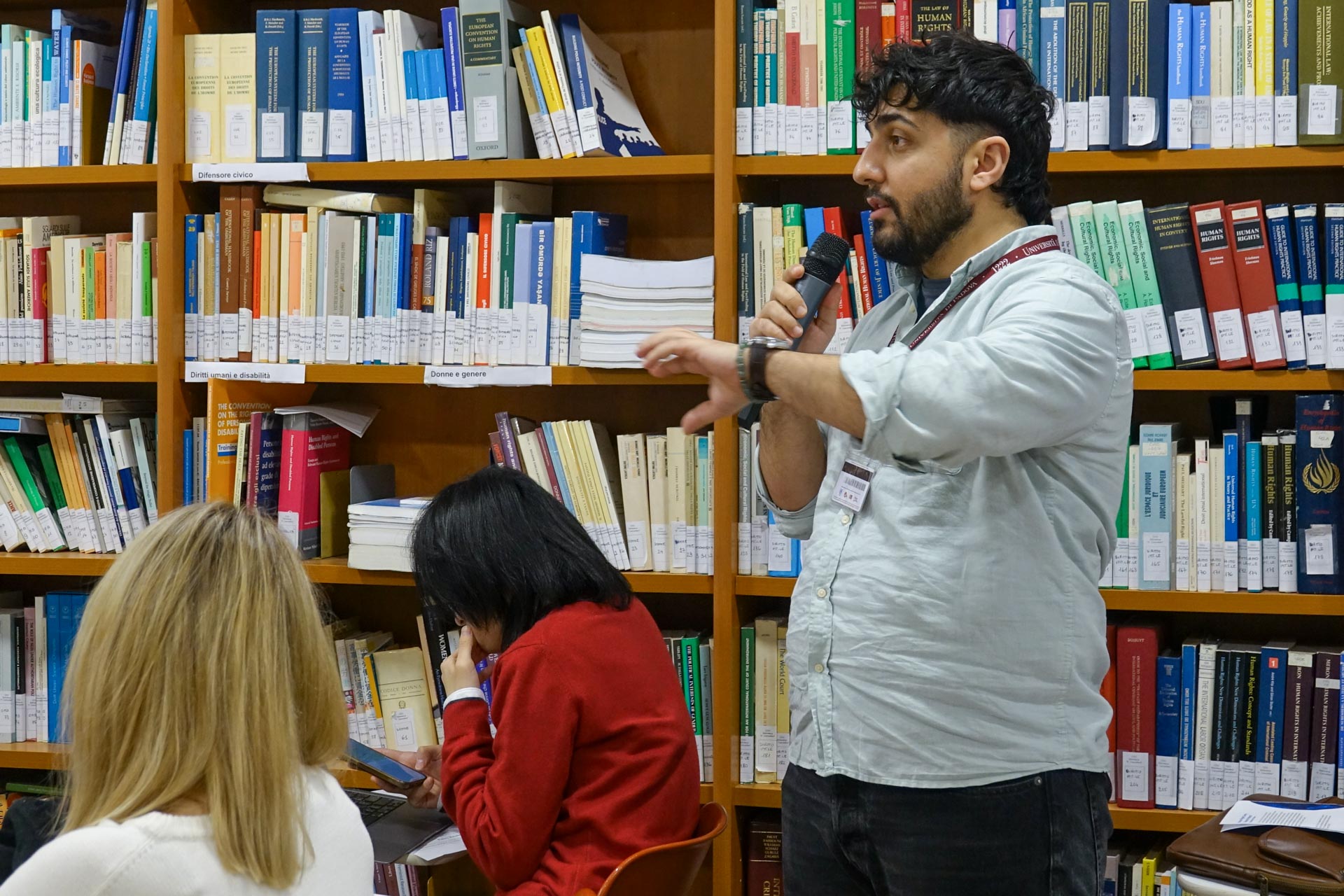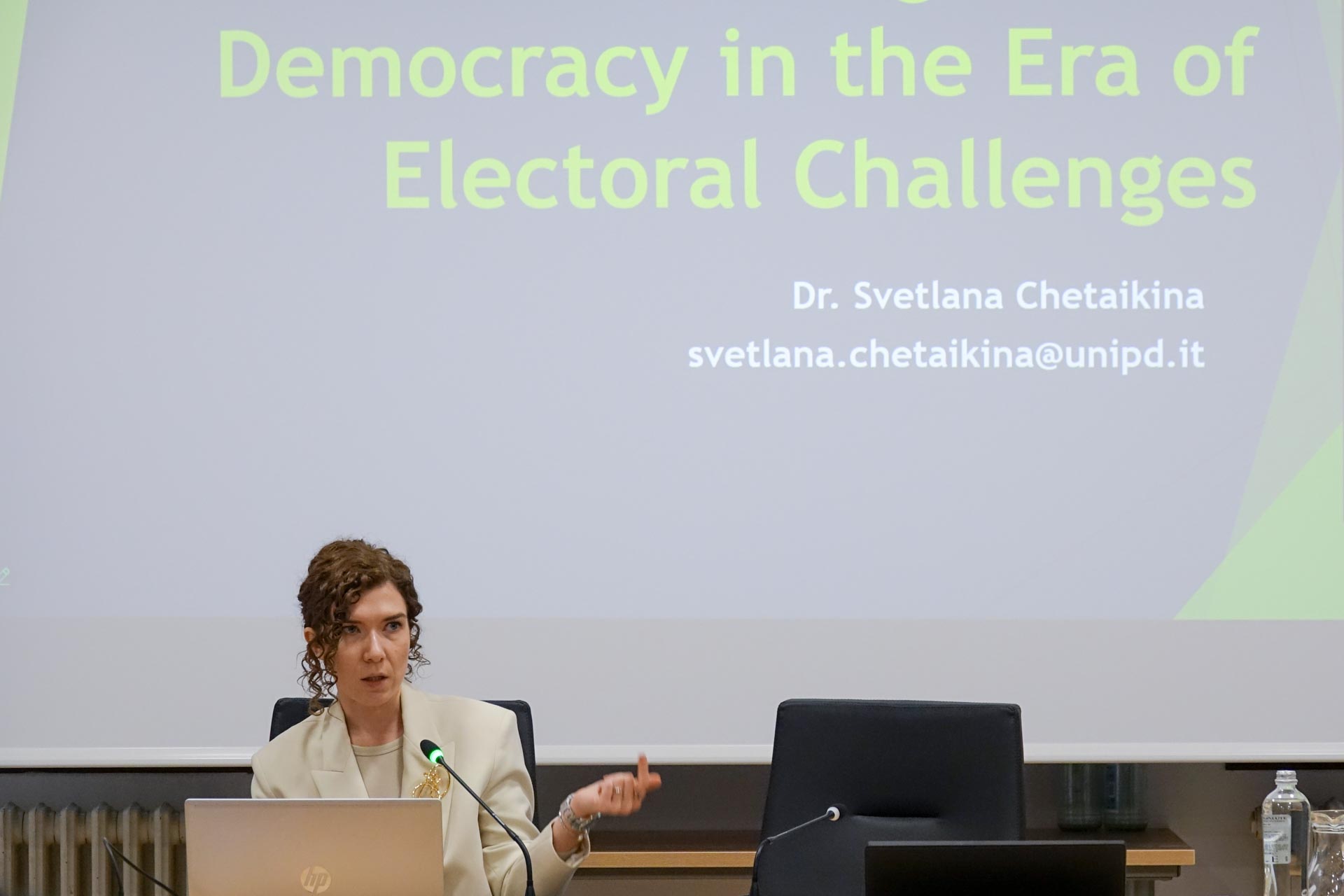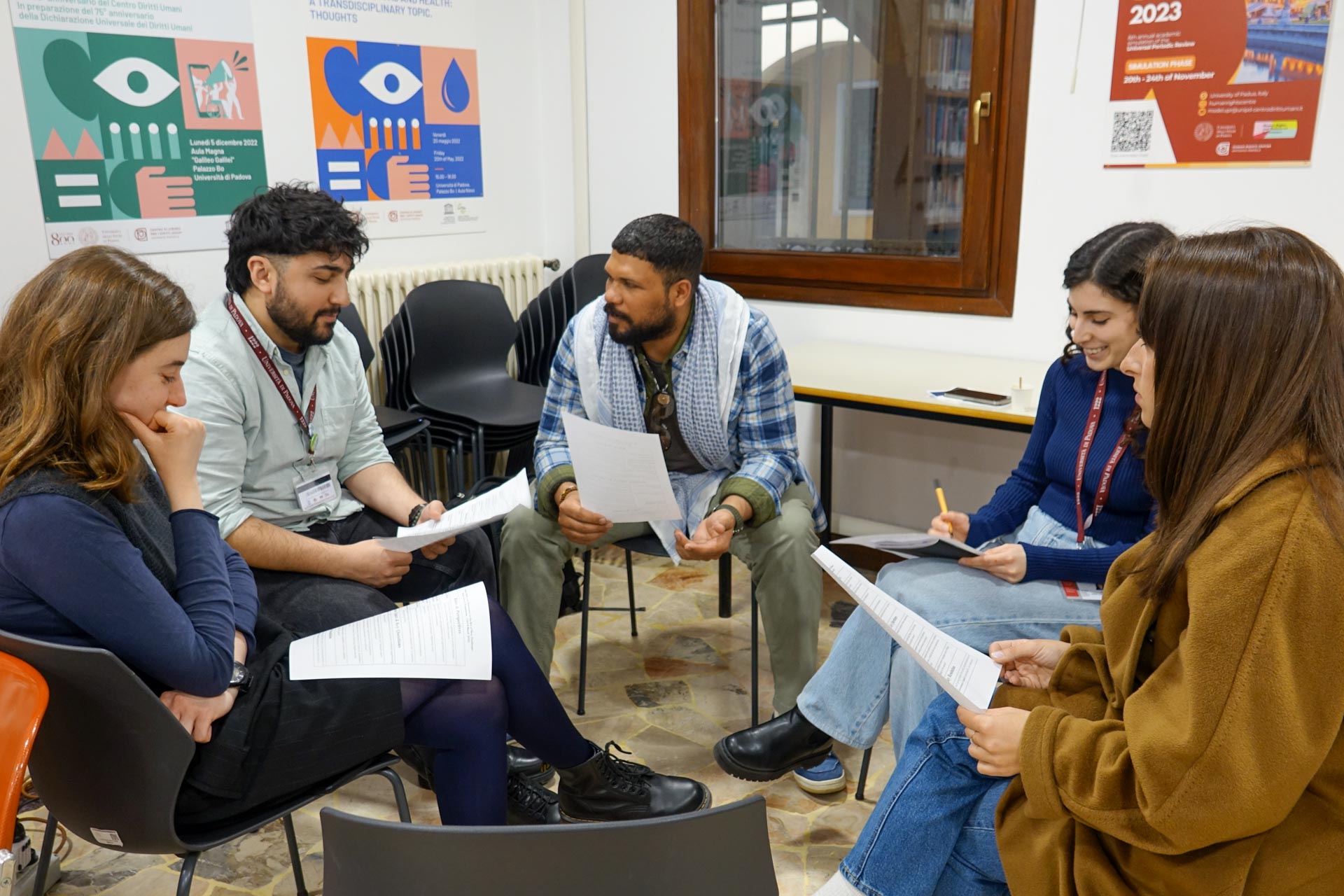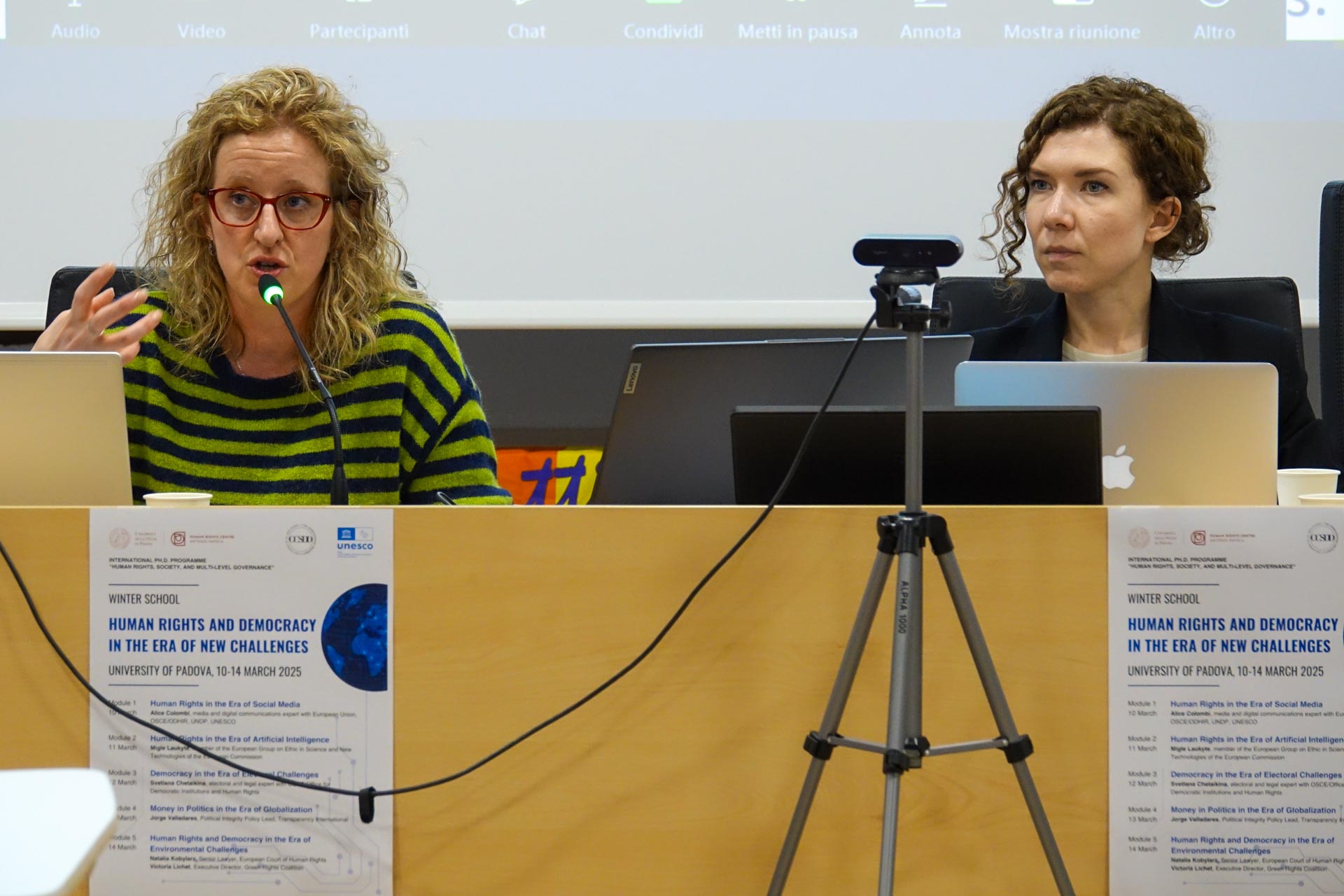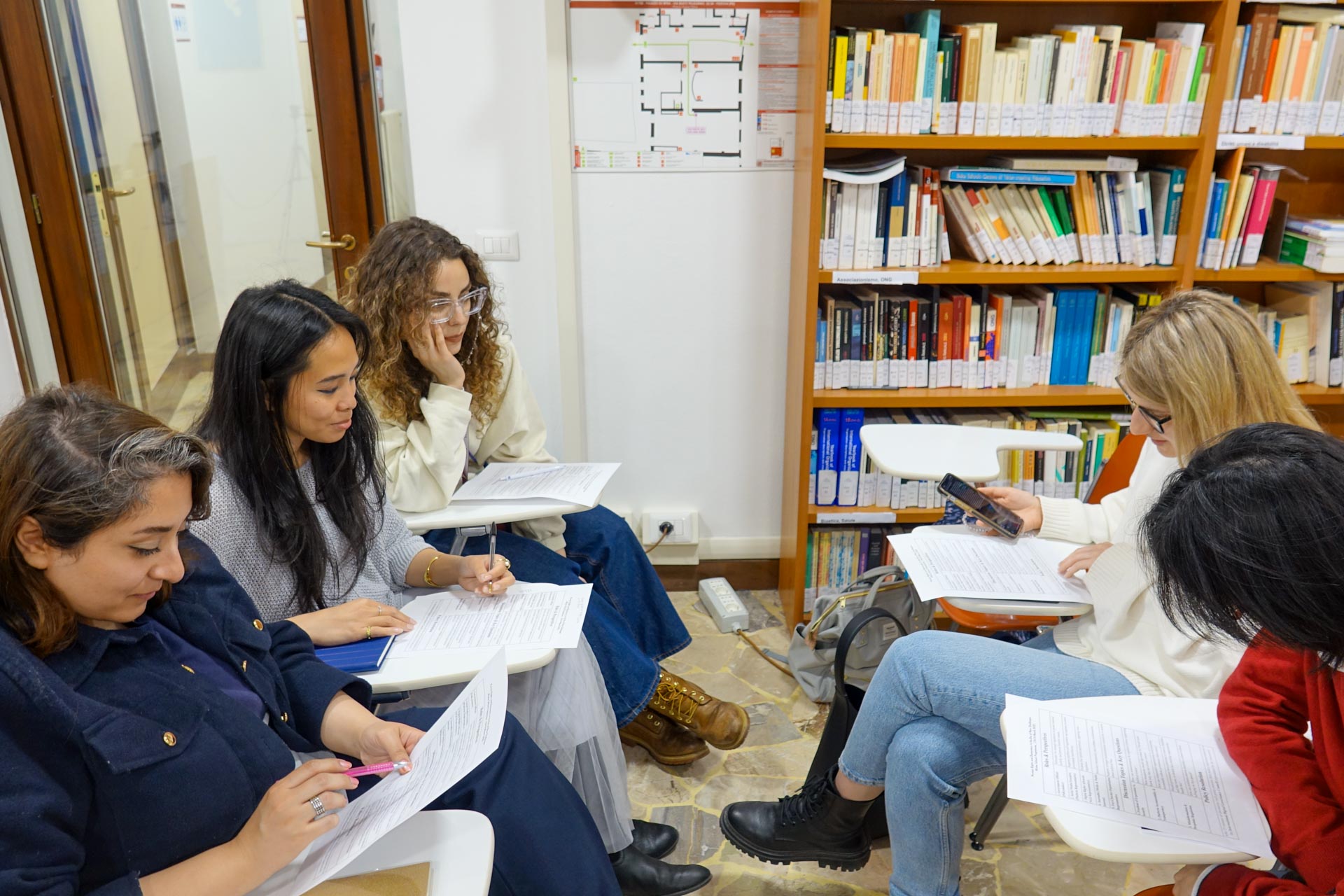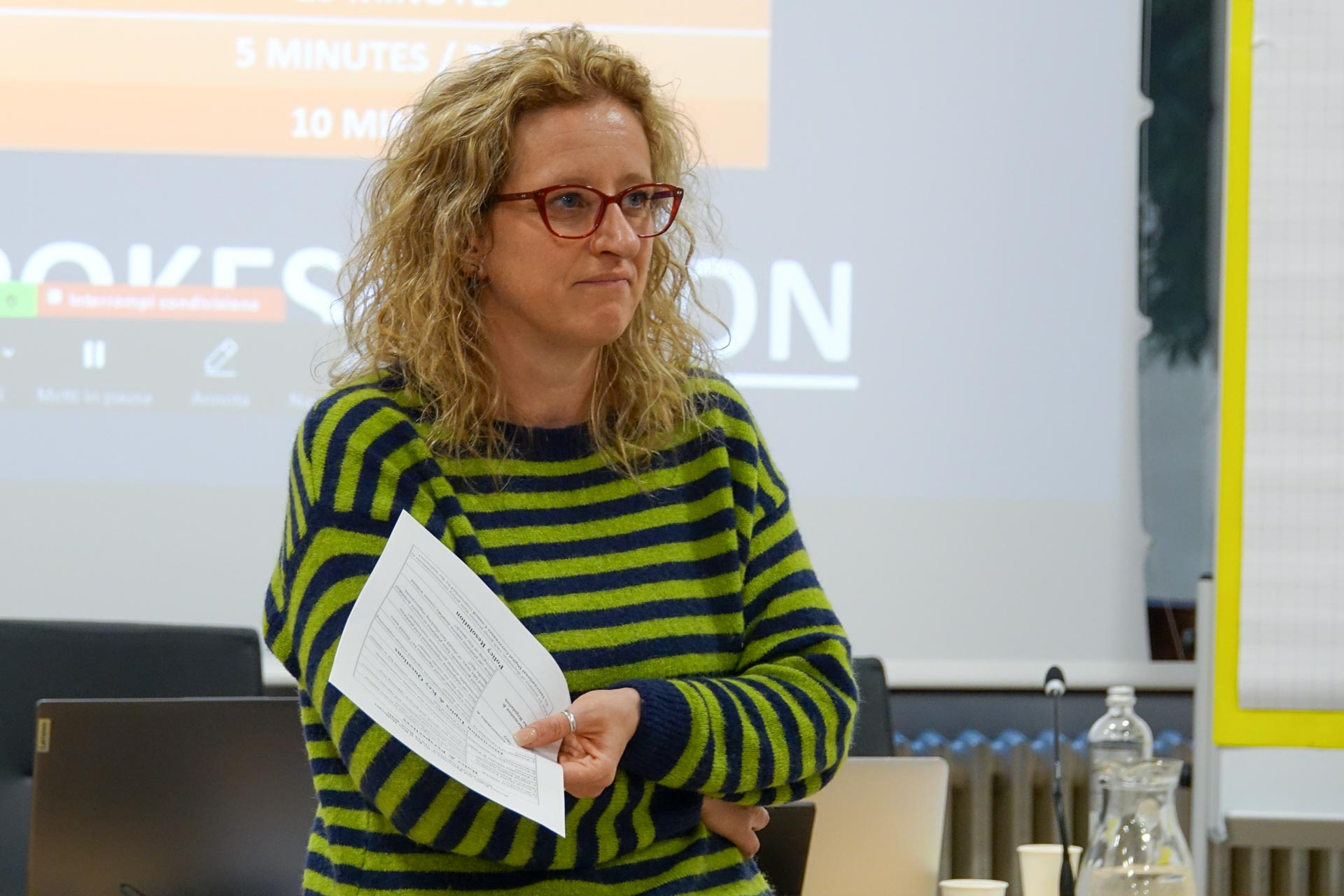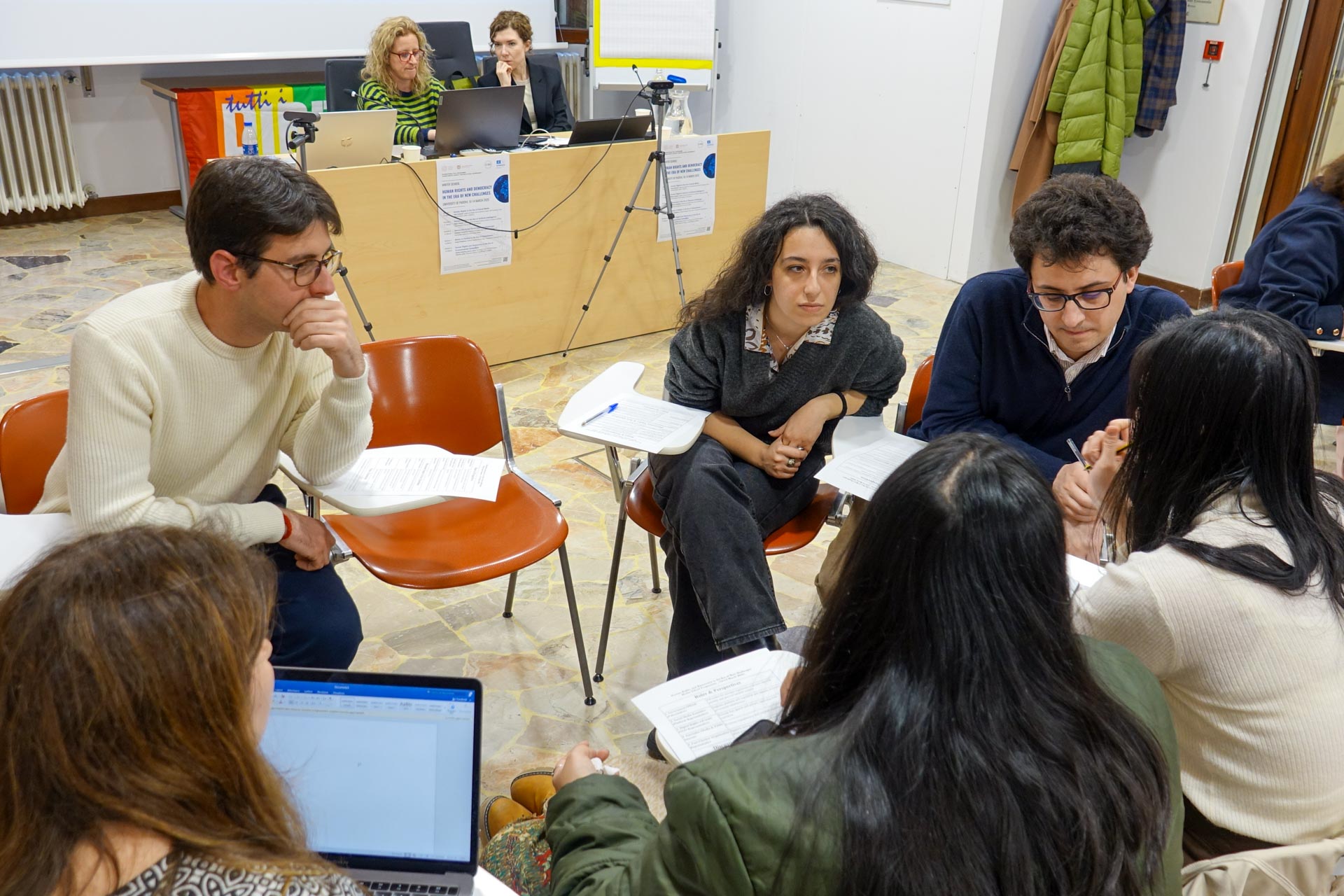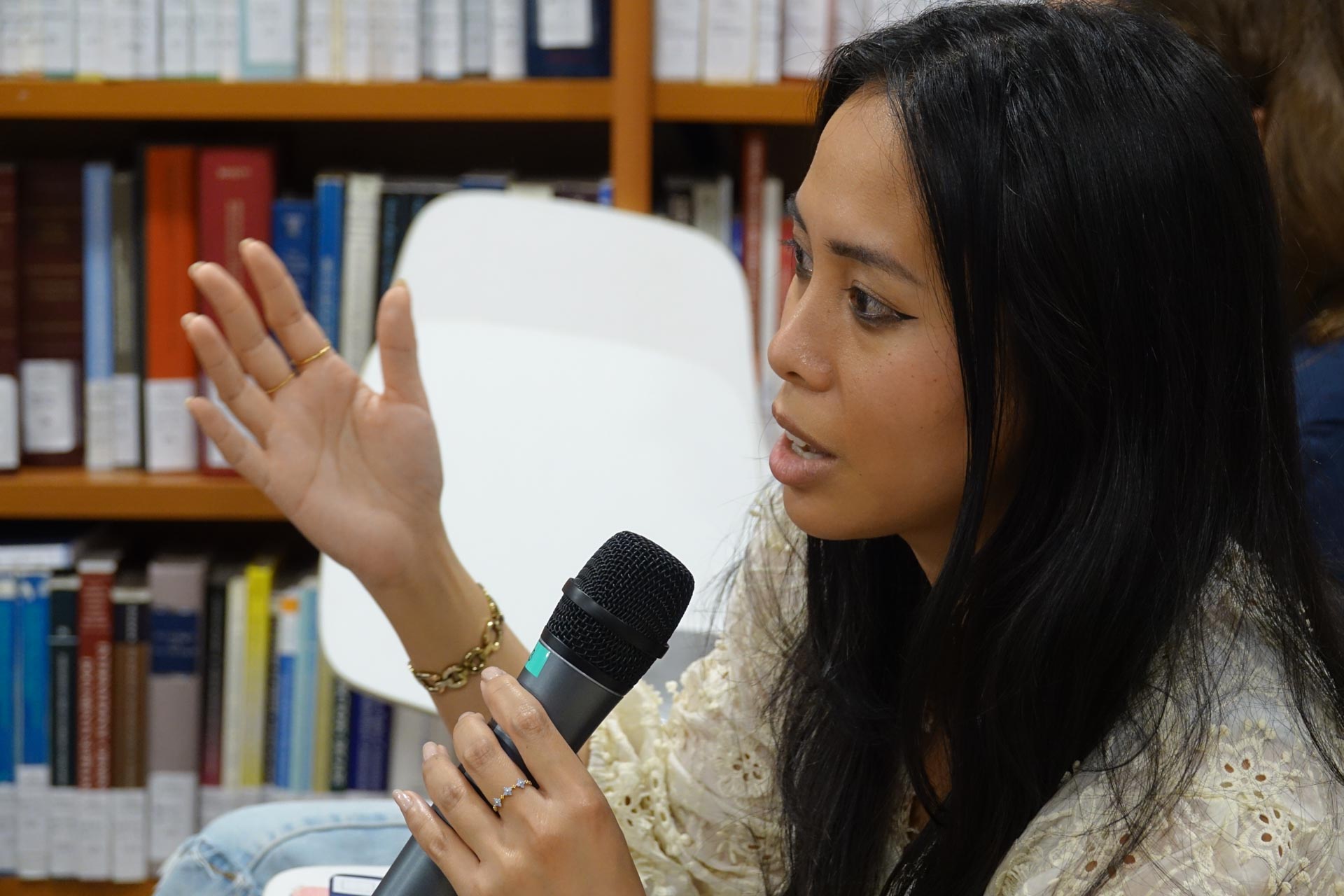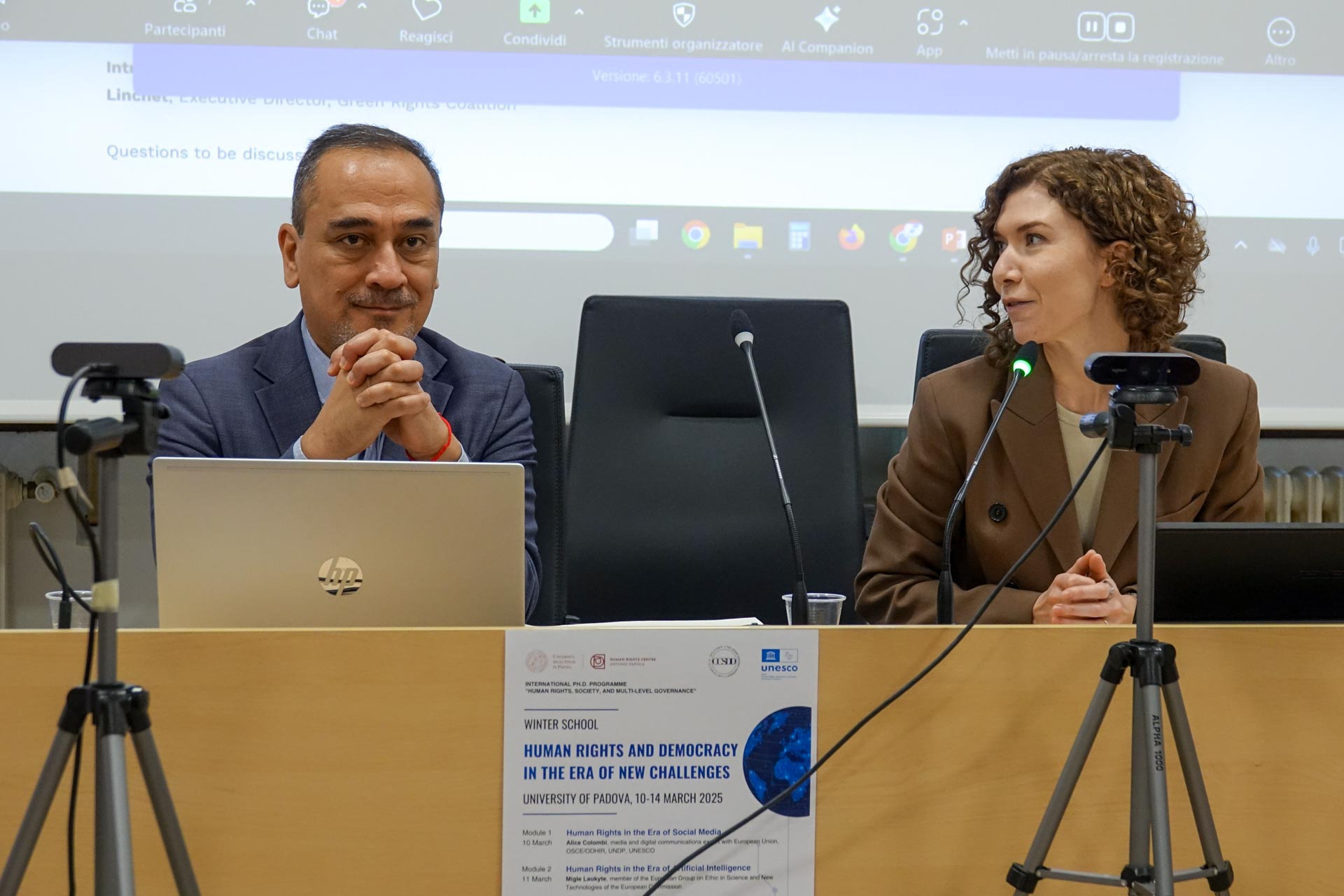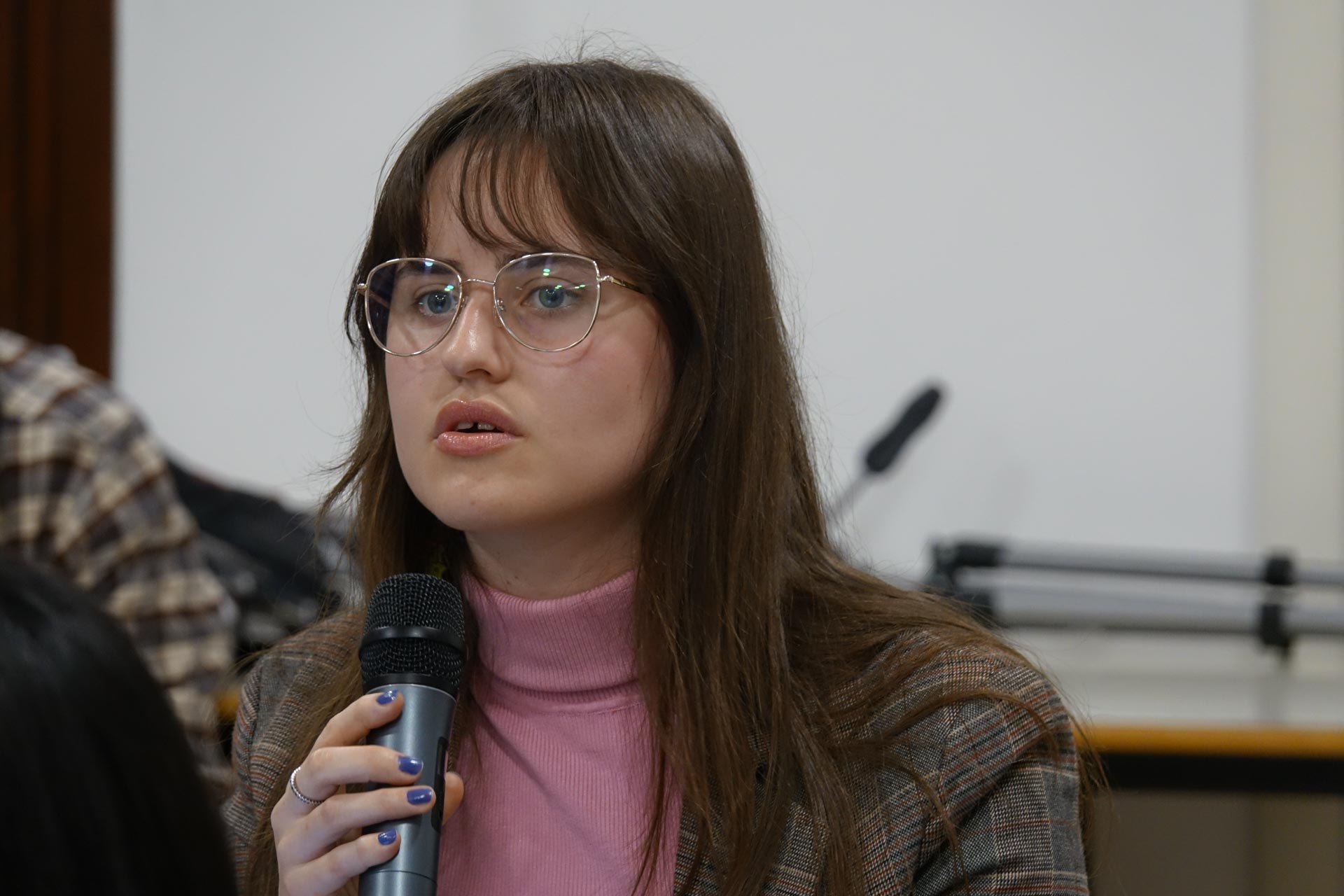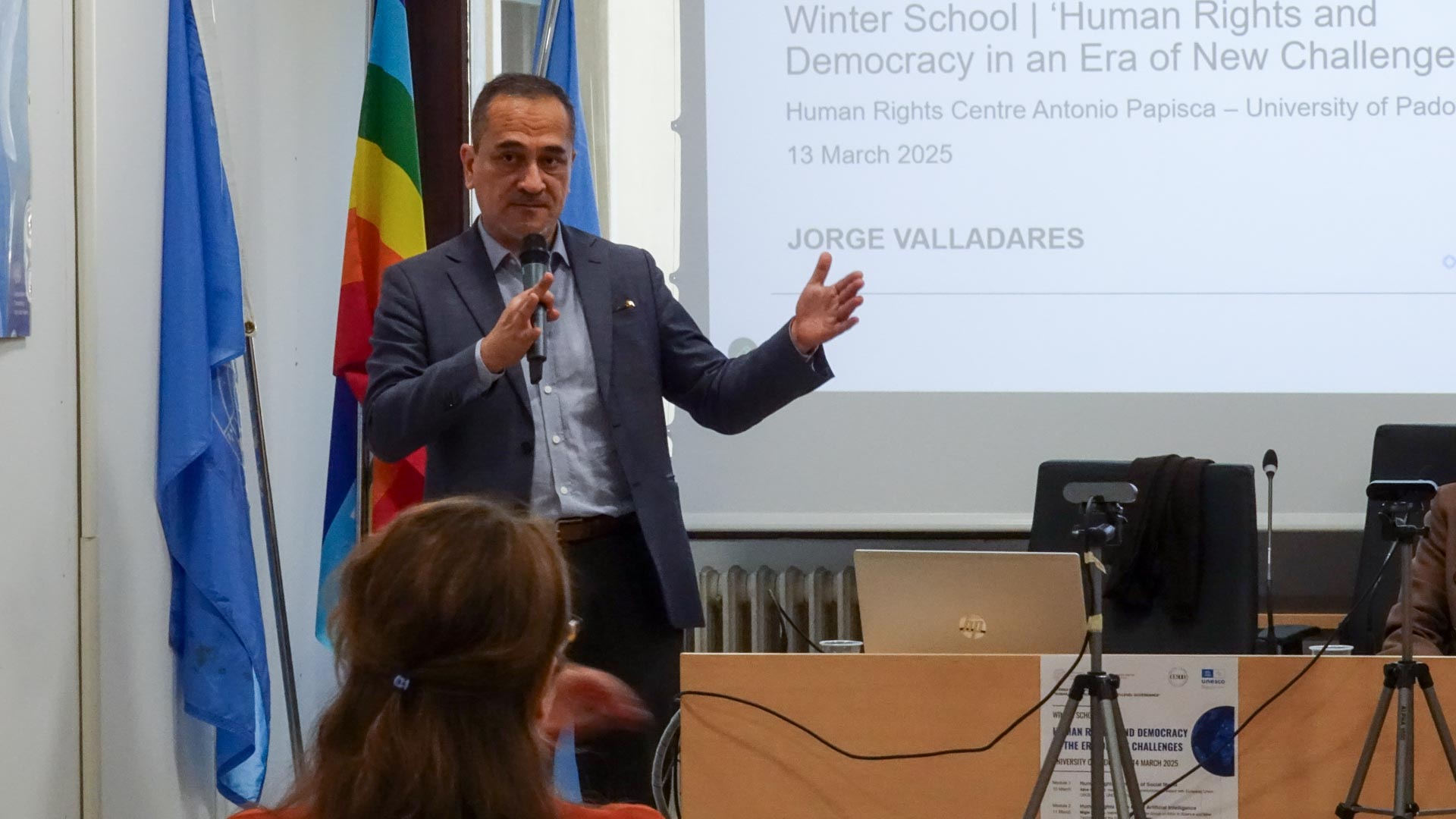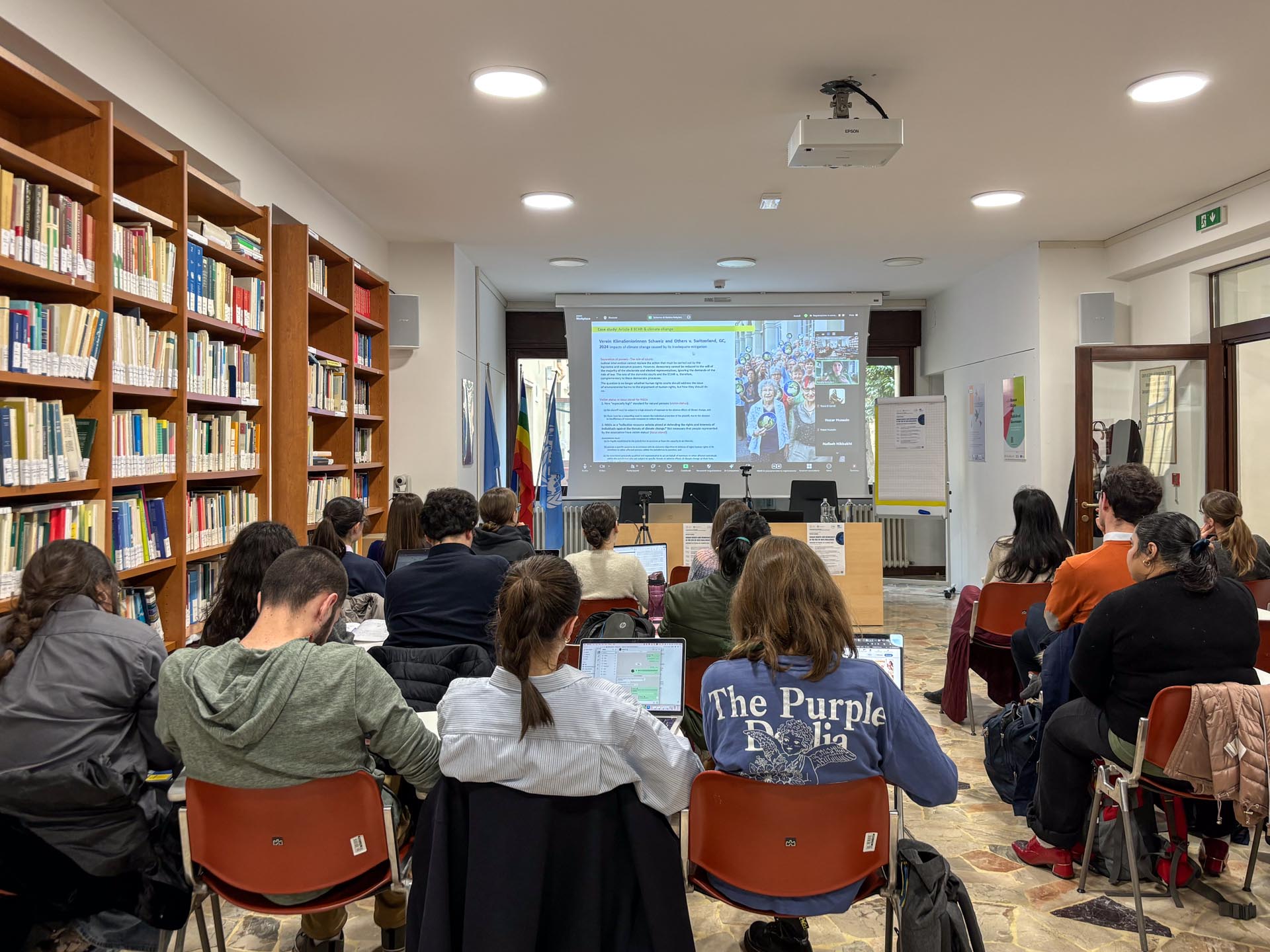Winter school "Human Rights and Democracy in the Era of New Challenges”, University of Padova, 10-14 March 2025
-
Event date: 10 -14 March 2025
-
Time: 14:30-17:30
-
Venue: Human Rights Centre “Antonio Papisca”, University of Padova

The Human Rights Centre “Antonio Papisca” - University of Padova, with the financial support of the Padova University under the “Shaping a World-Class University - year 2024” programme and the co-financing of the Center for Constitutional Studies and Democratic Development CCSDD, organises the Winter School (WS) on “Human Rights and Democracy in the Era of New Challenges”.
The Winter School will enhance students’ knowledge and understanding of how human rights interact with and shape responses to new global and local challenges. Participation of human rights practitioners from different international organizations will provide students with opportunity to develop understanding of how theoretical issues play out in practice and interact with policy-makers from leading European and International institutions engaged in practical application of human rights and democracy assistance. Each day is focusing on one key challenging issue and features international speakers representative and consultants of the international organizations such as Venice Commission of the Council of Europe, OSCE/Office for Democratic Institutions and Human Rights, Transparency International, UNESCO whose expertise offers valuable practical insights into selected topics. It widens professional perspective in application of the human rights knowledge by learning the required skills for human rights practice as well as by application of these skills in practical exercises designed on the basis of real-life examples.
Programme
The WS is divided into 5 modules. Each module includes one key expert presentation, a panel discussion, as well as presentation and a discussion of research papers. Students can simultaneously apply for several modules, according to their interests.
Module 1 - Human Rights in the Era of Social Media
10 March 2025, 14.30 – 17.30
Introducer: Alice Colombi, media and digital communications expert with European Union, OSCE/ODHIR, UNDP, UNESCO
Questions to be discussed include:
- What are the main human rights challenges related to the use of social media in the public discourse?
- How to find an appropriate balance between freedom of expression and regulation of social media?
- Which standards and principles for regulation of traditional media are applicable also for social media?
- Examples of successful regulation of social media?
- Overregulation of social media: when it happens and what are the reasons and effects?
- Journalistic freedoms and social media: are bloggers journalists? What are their freedoms and responsibilities?
Module 2 - Human Rights in the Era of Artificial Intelligence
11 March 2025, 14.30 – 17.30
Introducer: Migle Laukyte, member of the European Group on Ethic in Science and New Technologies of the European Commission
Questions to be discussed include:
- In which areas can AI enhance human rights? Any positive examples?
- What are the main human rights risks associated with AI?
- How is the regulation of AI helps mitigate the risks?
- Insights on the adoption of the CoE Convention on artificial intelligence. What are the expectations from this instrument?
- Comparative practices of the regulation of artificial intelligence at the national level?
Module 3 - Democracy in the Era of Electoral Challenges
12 March 2025, 14.30 – 17.30
Introducer: Svetlana Chetaikina, electoral and legal expert with OSCE/Office for Democratic Institutions and Human Rights
Questions to be discussed include:
- Why and when elections become a matter of the international concern? What is the role of human rights in this process?
- What are instruments for the assessment of elections? What are the ‘good electoral practices’, and what makes them such?
- Why some elections do not reflect the will of the people?
- What is the role of elections in democracies and non-democracies? Do non-democracies need elections?
- Does it matter to have international access to the elections that do not deliver democratic results?
Module 4 - Money in Politics in the Era of Globalization
13 March 2025, 14.30 – 17.30
Introducer: Jorge Valladares, Political Integrity Policy Lead, Transparency International
Questions to be discussed include:
- Does regulation of political financing matter for democratization?
- Are there any international standards for regulation of political finance?
- How transparency and accountability of institutions is linked with the political finance?
- What are the main tools to combat corruption?
- What anti-corruption practices should be incorporated in the national frameworks and what obstacles need to be overcome?
Module 5 – Human Rights and Democracy in the Era of Environmental Challenges
14 March 2025, 14.30 – 17.30
Introducers: Natalia Kobylarz, Senior Lawyer, European Court of Human Rights and Vittoria Linchet, Executive Director, Green Rights Coalition
Questions to be discussed include:
- What are the specific features of protection of environmental rights? What are the recent examples of the influence of climate change on the full enjoyment of human rights, and practices of tackling these issues?
- Should behavior of states towards the environmental protection change? What are new positive obligation of states vis-à-vis our environmental rights?
- What is the role of international cooperation and international influence in tackling environmental issues from the human rights perspective?
- How do human rights concepts change when it comes to jurisprudence on environmental rights?
Location, language, and contents
The activities will be held at the Human Rights Centre “Antonio Papisca” - University of Padova headquarters: via Beato Pellegrino, 28 Padova, on 10-14 March 2025.
English is the working language.
Speakers
Alice Colombi
Media and Digital Communications Consultant with over 15 years of experience in democracy, governance, and elections across EMEA, LATAM, and APAC regions. She has served as a core team member on 25 election observation missions with the European Union and OSCE/ODIHR and has contributed to EU- and UNDP-funded technical assistance projects. She supported UNESCO in implementing the Social Media 4 Peace project. Her expertise focuses on the role of social media in democratic discourse, digital communications in electoral processes, and monitoring the impact of social media on political campaigns.
Dr. Migle Laukyte
Associate Professor in Artificial Intelligence and Law at Universitat Pompeu Fabra (UPF). Her research focuses on legal changes and challenges posed by artificial intelligence, robotics, and disruptive technologies, with an emphasis on human rights, the evolution of rights, ethics of technology, and philosophy of law. She is a member of the European Group on Ethics in Science and New Technologies (EGE) for the 2025–2028 mandate, an expert in the EBP Group on Blockchain Ethics (EGBE) within the European Blockchain Service Infrastructure (EBSI), and serves on the Directive Board of the Gregorio Peces-Barba Institute of Human Rights at Universidad Carlos III de Madrid.
Dr. Svetlana Chetaikina
Adjunct Professor at the University of Padua and affiliated researcher at the Center for Constitutional Studies and Democratic Development (CCSDD) in Bologna. Since 2014, she has worked as a Legal and Election Analyst for the OSCE Office for Democratic Institutions and Human Rights, participating in over 20 international election observation and assessment missions in the Western Balkans, Eastern Europe, and Central Asia. Her research and teaching focus on constitutional and electoral studies, and she has published on election observation and suffrage rights. She also developed an open online course on human rights for non-lawyers.
Jorge Valladares
Jorge currently leads the Political Integrity work at the Transparency International Secretariat in
Berlin. Before joining TI, he worked with International IDEA as head of the Myanmar (2014-2016) and Panama country offices (2019). Between 2016 and 2018 he was also the head of the Political Participation Global Programme that supports political parties on policy engagement, integrity of political finance, and their parliamentary work.
Jorge has worked on a range of issues of democracy reform, such as political finance, elections, parliaments, political dialogue, media, and civic engagement since 1995. Jorge has supported political party, civil society, and government leaders carry out democratic reforms, in countries from Latin America, Southeast Asia, and Africa. He has authored or co- authored several works, including Politics Meets Policies and Democratic Accountability in Service Delivery, “The changing nature of political parties and representation”.
Dr. Natalia Kobylarz
Senior lawyer at the Registry of the European Court of Human Rights and human rights lecturer at the University of Grenoble Alpes. In 2016, she was seconded to the Inter-American Court of Human Rights as an adviser on European human rights jurisprudence. Her expertise lies in human rights law and environmental law. She is also the founder of Work Green, a staff initiative promoting environmental sustainability at the Council of Europe.
Victoria Lichet
Attorney at the New York Bar and Executive Director of the Green Rights Coalition since 2022. Specializing in human rights and environmental law, she leads advocacy efforts and strategic campaigns within the Coalition.
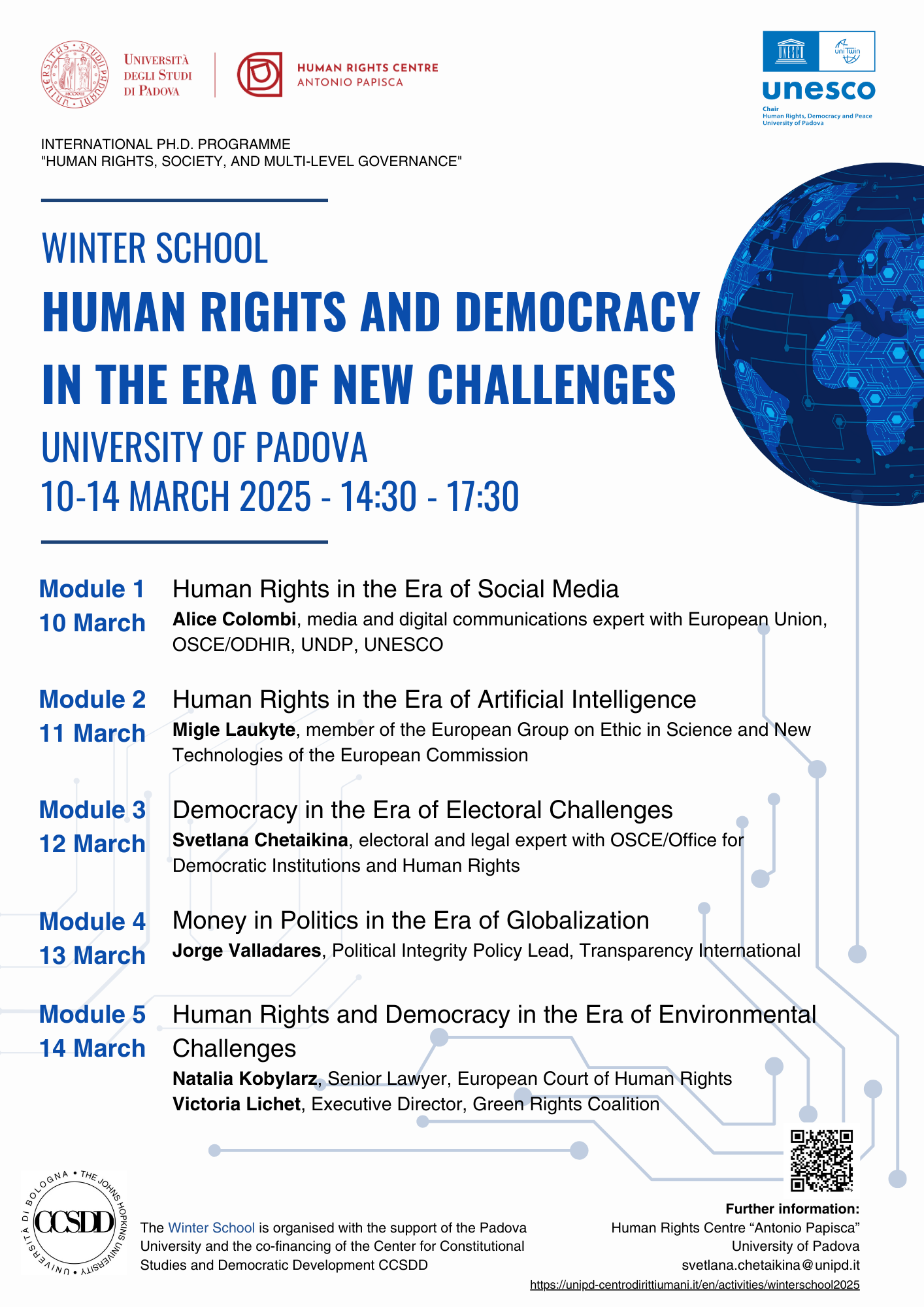
Application deadline: 1.00 pm on 17 February 2025.
The application form is available, together with the call, in the attached documents below.
For further information:
Human Rights Centre “Antonio Papisca” - University of Padova
svetlana.chetaikina@unipd.it




